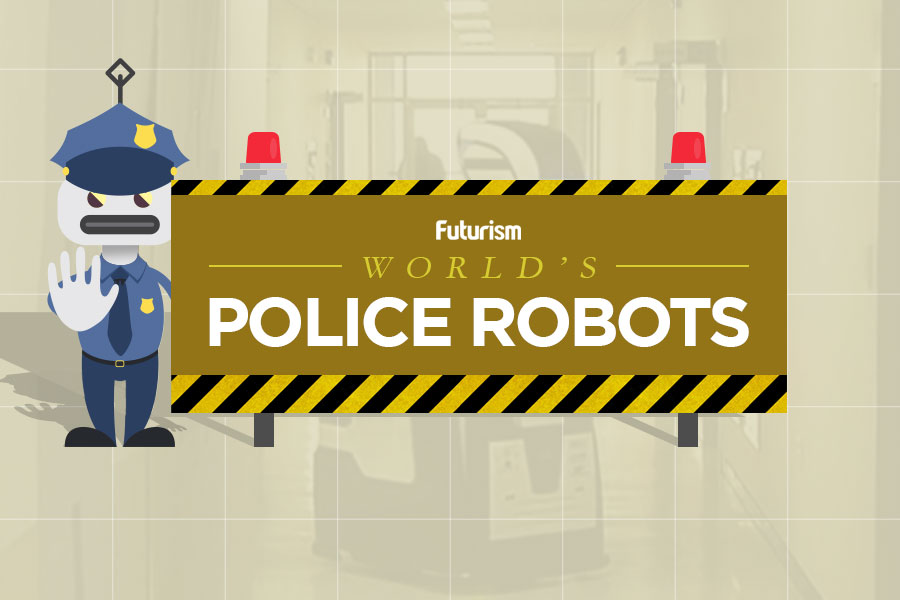On November 7, China announced plans to open an unmanned police station powered by artificial intelligence (AI) in Wuhan, one of its capital cities. The AI police station will likely focus on vehicle- and driver-related issues, which makes it more analogous to an American Department of Motor Vehicles (DMV) than a precinct (sorry, Robocop ), but the decision to build it is still right inline with China’s plans to be a world leader in AI by 2030.
copyright by futurism.com
 According to a report from the Chinese financial paper Caijing Neican, the futuristic station will offer simulated driver examinations and provide registration services. Cutting-edge facial-recognition technology developed by Tencent will identify citizens within the station. The idea is that this will eliminate the need for users to sit at stations for long periods of time, sign up for accounts, or download apps — the AI will access all pertinent information as soon as it sees the person’s face.
According to a report from the Chinese financial paper Caijing Neican, the futuristic station will offer simulated driver examinations and provide registration services. Cutting-edge facial-recognition technology developed by Tencent will identify citizens within the station. The idea is that this will eliminate the need for users to sit at stations for long periods of time, sign up for accounts, or download apps — the AI will access all pertinent information as soon as it sees the person’s face.
Automated Misanthropy?
At first blush, the AI police station sounds like it could be an elegant, smooth addition to Chinese infrastructural services. Since it will be open for public service 24/7, with fully-committed hardware, it could eliminate the many slip-ups caused by human workers and frustrating web-based failures. If successful, the station could lead to the development of additional unmanned government facilities in China or abroad.
However, while these high-tech stations could benefit visitors, their creation opens up the wider discussion as to how advancements in robotics and automated systems will affect society at large, particularly in terms of work.
Will a fully-automated world leave most humans behind to starve in poverty? Would an automated infrastructure force humanity to self-actualize into a philanthropic and classless society? Will humans cease to be defined by economic net-worth and the realpolitik of lifelong careerists? Or will class disparities widen as the richest portion of society hordes AI resources, leading to a regressive, mercantile capitalism? […]
read more – copyright by futurism.com


On November 7, China announced plans to open an unmanned police station powered by artificial intelligence (AI) in Wuhan, one of its capital cities. The AI police station will likely focus on vehicle- and driver-related issues, which makes it more analogous to an American Department of Motor Vehicles (DMV) than a precinct (sorry, Robocop ), but the decision to build it is still right inline with China’s plans to be a world leader in AI by 2030.
copyright by futurism.com
Automated Misanthropy?
At first blush, the AI police station sounds like it could be an elegant, smooth addition to Chinese infrastructural services. Since it will be open for public service 24/7, with fully-committed hardware, it could eliminate the many slip-ups caused by human workers and frustrating web-based failures. If successful, the station could lead to the development of additional unmanned government facilities in China or abroad.
However, while these high-tech stations could benefit visitors, their creation opens up the wider discussion as to how advancements in robotics and automated systems will affect society at large, particularly in terms of work.
Will a fully-automated world leave most humans behind to starve in poverty? Would an automated infrastructure force humanity to self-actualize into a philanthropic and classless society? Will humans cease to be defined by economic net-worth and the realpolitik of lifelong careerists? Or will class disparities widen as the richest portion of society hordes AI resources, leading to a regressive, mercantile capitalism? […]
read more – copyright by futurism.com
Share this: